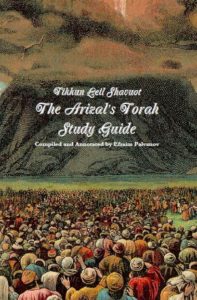A Religious Zionist Pioneer
 Meir Berlin (1880-1949) was born in Volozhin, near modern-day Minsk, Belarus. He was the youngest son of the “Netziv”, Rabbi Naftali Tzvi Yehuda Berlin, one of the greatest rabbis of the generation and head of the illustrious Volozhin Yeshiva. Young Meir studied at his father’s yeshiva, as well as other prestigious academies like Brisk and Telshe. He received his rabbinic ordination at the age of 22, then headed to the University of Berlin for secular studies. It is there that he became a staunch Zionist, and in 1905 joined the Mizrachi movement of religious Zionists (founded by Rabbi Yitzchak Yaakov Reines). Berlin represented Mizrachi at the Seventh Zionist Congress where he voted against the Uganda Proposal (creating a Jewish state in Uganda instead of the Holy Land). In 1911, he founded a religious Zionist newspaper, HaIvri, which would go on to feature great writers and thinkers like S.Y. Agnon and Eliezer Ben-Yehuda. Berlin moved to New York a few years later to establish and develop the American branch of the Mizrachi movement. In a short period of time, it grew to over 100 chapters. He served as president of Yeshiva University between 1920 and 1922. The following year, he finally fulfilled his dream of making aliyah and settled in Jerusalem. As did many others, Berlin would later Hebraize his last name to “Bar-Ilan”. Meanwhile, he founded a new newspaper, HaTzofeh, and started work on the Talmudical Encyclopedia (which would eventually be a massive 42-volume series). Bar-Ilan served on the boards of Mizrachi Bank and the Jewish National Fund. When the British limited Jewish immigration to the Holy Land, Bar-Ilan became their vocal opponent and began a campaign of peaceful protest and civil disobedience. In 1943, he went on a trip around the world to build support for establishing a Jewish state and met with numerous political leaders. He also criticized the American government for staying silent and doing little about the atrocities happening in Europe, and campaigned for more assistance to Jewish refugees. When the State of Israel was finally born, Rabbi Bar-Ilan presided over a committee to discuss how Jewish law can continue to be observed properly in the new country. He also championed the establishment of a university that would combine rigorous religious education with advanced secular studies and professional training. Though he did not live to see it, such a university did open its doors in Tel-Aviv in 1955, and was named after him: Bar-Ilan University. Today, Bar-Ilan University is Israel’s second-largest educational facility, with over 20,000 students. Moshav Beit Meir and the Meir Hills in Israel are named after Rabbi Bar-Ilan, too, along with numerous other streets, neighbourhoods, and schools.
Meir Berlin (1880-1949) was born in Volozhin, near modern-day Minsk, Belarus. He was the youngest son of the “Netziv”, Rabbi Naftali Tzvi Yehuda Berlin, one of the greatest rabbis of the generation and head of the illustrious Volozhin Yeshiva. Young Meir studied at his father’s yeshiva, as well as other prestigious academies like Brisk and Telshe. He received his rabbinic ordination at the age of 22, then headed to the University of Berlin for secular studies. It is there that he became a staunch Zionist, and in 1905 joined the Mizrachi movement of religious Zionists (founded by Rabbi Yitzchak Yaakov Reines). Berlin represented Mizrachi at the Seventh Zionist Congress where he voted against the Uganda Proposal (creating a Jewish state in Uganda instead of the Holy Land). In 1911, he founded a religious Zionist newspaper, HaIvri, which would go on to feature great writers and thinkers like S.Y. Agnon and Eliezer Ben-Yehuda. Berlin moved to New York a few years later to establish and develop the American branch of the Mizrachi movement. In a short period of time, it grew to over 100 chapters. He served as president of Yeshiva University between 1920 and 1922. The following year, he finally fulfilled his dream of making aliyah and settled in Jerusalem. As did many others, Berlin would later Hebraize his last name to “Bar-Ilan”. Meanwhile, he founded a new newspaper, HaTzofeh, and started work on the Talmudical Encyclopedia (which would eventually be a massive 42-volume series). Bar-Ilan served on the boards of Mizrachi Bank and the Jewish National Fund. When the British limited Jewish immigration to the Holy Land, Bar-Ilan became their vocal opponent and began a campaign of peaceful protest and civil disobedience. In 1943, he went on a trip around the world to build support for establishing a Jewish state and met with numerous political leaders. He also criticized the American government for staying silent and doing little about the atrocities happening in Europe, and campaigned for more assistance to Jewish refugees. When the State of Israel was finally born, Rabbi Bar-Ilan presided over a committee to discuss how Jewish law can continue to be observed properly in the new country. He also championed the establishment of a university that would combine rigorous religious education with advanced secular studies and professional training. Though he did not live to see it, such a university did open its doors in Tel-Aviv in 1955, and was named after him: Bar-Ilan University. Today, Bar-Ilan University is Israel’s second-largest educational facility, with over 20,000 students. Moshav Beit Meir and the Meir Hills in Israel are named after Rabbi Bar-Ilan, too, along with numerous other streets, neighbourhoods, and schools.
Happy Jerusalem Day!
Bar-Ilan: Forgotten Pioneer of Jewish Activism
The Zohar Prophecy of the Six-Day War
Words of the Week
If horses were being slaughtered as are the Jews of Poland, there would by now be a loud demand for organized action against such cruelty to animals. Somehow, when it concerns Jews, everybody remains silent, including the intellectuals and humanitarians of free and enlightened America.
– Rabbi Meir Bar-Ilan

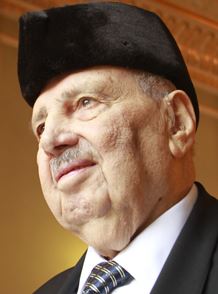
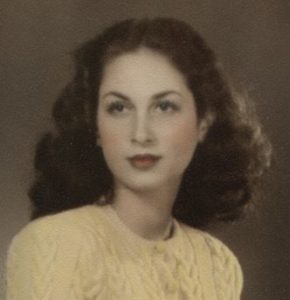
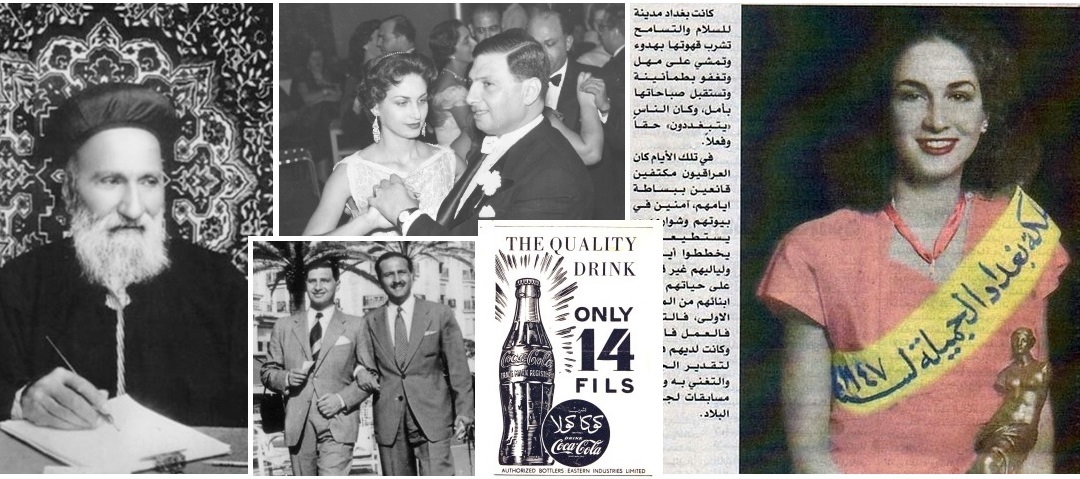
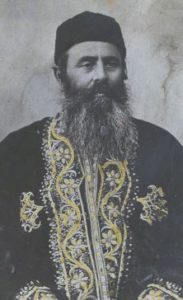 Shlomo ben Yakov Moussaieff (1852-1922) was born in the emirate of Bukhara (present-day Uzbekistan). Both a renowned rabbi and a wealthy businessman, he made aliyah to the Holy Land in 1888 – bringing with him forty cases of gold – and was one of the founders of Jerusalem’s famous Bukharian Quarter. Moussaieff built four synagogues, and homes for 25 poor families. Meanwhile, he published a prayer book and disseminated it widely, making it his mission to inspire more Jews to pray regularly. He also continued his business ventures, particularly in real estate, tea, silk, and gemstones. Moussaieff was an avid collector of rare manuscripts, and amassed an impressive library with 225 ancient texts, including prized manuscripts of Maimonides and the mystical teachings of the Arizal. Until his last days, Moussaieff was committed to the development of Israel, and stated in his will that only those of his seven children that remain in Israel would receive any inheritance.
Shlomo ben Yakov Moussaieff (1852-1922) was born in the emirate of Bukhara (present-day Uzbekistan). Both a renowned rabbi and a wealthy businessman, he made aliyah to the Holy Land in 1888 – bringing with him forty cases of gold – and was one of the founders of Jerusalem’s famous Bukharian Quarter. Moussaieff built four synagogues, and homes for 25 poor families. Meanwhile, he published a prayer book and disseminated it widely, making it his mission to inspire more Jews to pray regularly. He also continued his business ventures, particularly in real estate, tea, silk, and gemstones. Moussaieff was an avid collector of rare manuscripts, and amassed an impressive library with 225 ancient texts, including prized manuscripts of Maimonides and the mystical teachings of the Arizal. Until his last days, Moussaieff was committed to the development of Israel, and stated in his will that only those of his seven children that remain in Israel would receive any inheritance.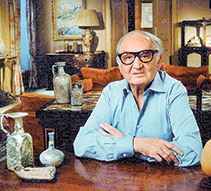 His grandson, also Shlomo Moussaieff (1923-2015), though better known as Sam, would become even more famous. One of twelve children raised in Jerusalem, Sam Moussaieff ran away from home as a teen to avoid his strict father. Living in a synagogue, he worked for a carpenter and sold ancient coins he would find in Jerusalem’s caves and tombs. Once arrested by Arab policemen, he ended up in a Muslim school for nearly a year, becoming proficient in Arabic and the Koran. At 17, Moussaieff enlisted in the British Army to fight the Nazis. After World War II, he fought for Israel’s independence and was captured by the Jordanians, who imprisoned him for a year. Moussaieff returned to Jerusalem and joined the family jewellery business. He soon opened his own antiquities shop in Jaffa, at times getting in trouble for smuggling goods. In 1963, Moussaieff was offered to have his record cleared of legal issues, as well as the rights to an exclusive shop in London’s Hilton Hotel, in exchange for handwritten letters from Maimonides which he owned. Moussaieff accepted and moved to London. His shop soon specialized in jewellery, and he became the dealer of choice for wealthy barons from Arab oil states thanks to his pristine Arabic. Moussaieff became world-renowned for his extremely rare and special gems. He owned the most precious stone in the world: a red diamond valued at $20 million. In 2011, he was ranked among the richest Londoners, with an estimated worth of some $350 million. Moussaieff amassed a personal collection of over 60,000 ancient artifacts, including millennia-old seals from Jerusalem’s First Temple, and reportedly even items associated with the forefather Abraham! His stated goal was to collect indisputable evidence proving the accuracy of the Torah. Moussaieff was given an honourary degree by Bar Ilan University (to whom he donated many artifacts, including his grandfather’s ancient manuscripts) which established the Dr. Shlomo Moussaieff Center for Kabbala Research. Interestingly, Moussaieff once purchased an ancient Torah scroll for $1 million from the Allenby family – who had the Torah because the elder Shlomo Moussaieff gave it as a gift to General Allenby during World War I!
His grandson, also Shlomo Moussaieff (1923-2015), though better known as Sam, would become even more famous. One of twelve children raised in Jerusalem, Sam Moussaieff ran away from home as a teen to avoid his strict father. Living in a synagogue, he worked for a carpenter and sold ancient coins he would find in Jerusalem’s caves and tombs. Once arrested by Arab policemen, he ended up in a Muslim school for nearly a year, becoming proficient in Arabic and the Koran. At 17, Moussaieff enlisted in the British Army to fight the Nazis. After World War II, he fought for Israel’s independence and was captured by the Jordanians, who imprisoned him for a year. Moussaieff returned to Jerusalem and joined the family jewellery business. He soon opened his own antiquities shop in Jaffa, at times getting in trouble for smuggling goods. In 1963, Moussaieff was offered to have his record cleared of legal issues, as well as the rights to an exclusive shop in London’s Hilton Hotel, in exchange for handwritten letters from Maimonides which he owned. Moussaieff accepted and moved to London. His shop soon specialized in jewellery, and he became the dealer of choice for wealthy barons from Arab oil states thanks to his pristine Arabic. Moussaieff became world-renowned for his extremely rare and special gems. He owned the most precious stone in the world: a red diamond valued at $20 million. In 2011, he was ranked among the richest Londoners, with an estimated worth of some $350 million. Moussaieff amassed a personal collection of over 60,000 ancient artifacts, including millennia-old seals from Jerusalem’s First Temple, and reportedly even items associated with the forefather Abraham! His stated goal was to collect indisputable evidence proving the accuracy of the Torah. Moussaieff was given an honourary degree by Bar Ilan University (to whom he donated many artifacts, including his grandfather’s ancient manuscripts) which established the Dr. Shlomo Moussaieff Center for Kabbala Research. Interestingly, Moussaieff once purchased an ancient Torah scroll for $1 million from the Allenby family – who had the Torah because the elder Shlomo Moussaieff gave it as a gift to General Allenby during World War I!